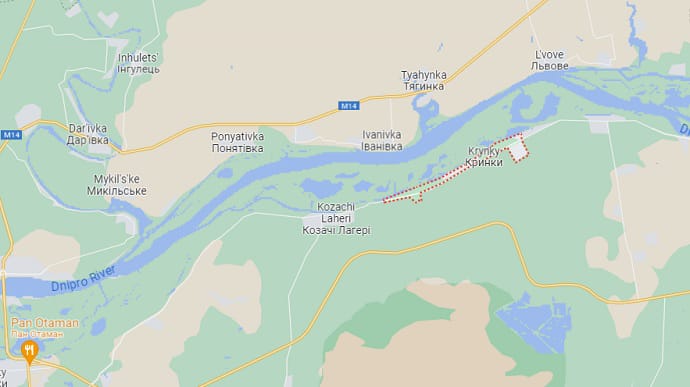Forbes: Ukraine’s largest hydropower plant needs minimum 3 years to recover after Russian strikes
The Russian attack on Ukraine's largest Dnipro Hydroelectric Power Plant halted its electricity generation and the strategic location of the plant, just 50 km (31 miles) from the frontline, made it an easy target for Russian forces.


It will take at least three years to restore Ukraine’s largest hydroelectric power plant to its pre-attack condition after it was damaged by Russian missile strikes on 22 March and 1 June, according to CEO of Ukrhydroenergo, Ihor Syrota, in an interview with Forbes Ukraine.
Since March 2024, Russian strikes have devastated Ukraine’s power grid, leading to severe blackouts and energy shortages in all the oblasts of Ukraine.
Syrota highlighted the vulnerability of the Dnipro Hydroelectric Power Plant (HPP), noting its proximity to the front line because it is located in Zaporizhzhia, just 50 km (31 miles) from the frontline.
“For the enemy, the Dnipro HPP is more accessible; the front line is 50 km away. They hit there with various missiles – S-300, X-101, X-69. Our air defense is not always able to cope with such an influx of missiles,” Syrota said to Forbes Ukraine.
The restoration process is complicated by the need to implement measures to protect against future attacks.
Ukrhydroenergo, the Ukrainian state-owned hydropower generating company, is preparing legal action in both international and national courts to seek compensation for damages, according to Forbes Ukraine.
The Dnipro plant is not an isolated case. Syrota revealed that all of Ukraine’s ten largest hydroelectric plants have suffered missile attacks, with over 120 strikes recorded by mid-July.
These attacks have significantly impacted Ukraine’s energy sector, with Ukrhydroenergo losing nearly 45% of its electricity generation capacity.
This recent assault is part of a broader strategy targeting Ukraine’s energy infrastructure, which began on 10 October 2022. Since then, Russian attacks have destroyed more than 9 GW of electricity generation capacity, while 18 GW remains under Russian occupation.
Ukraine employed various strategies to address the resulting energy deficit, including increasing distributed generation and importing electricity.
The Dnipro Hydroelectric Station has gotten into critical condition after a Russian missile strike on 1 June 2024. This attack incapacitated the station, halting electricity generation and closing the Dnipro River dam bridge to all traffic.
Another Russian strike destroyed The Kakhovka hydroelectric power plant beyond repair in June 2023, causing massive flooding and killing at least 34 people.
Since March 2024, Russian strikes reduced Ukraine’s power grid capacity by 70%. This damage costs $12.5 billion.
Related:
- Ukraine’s power grid teeters on brink: 70% generation lost to Russian strikes
- Russian attack leaves major Ukrainian hydroelectric station in critical condition
- Russia shells Ukraine’s DTEK thermal plants nearly 180 times since all-out war began
- Zelenskyy tells EU Russia has almost entirely destroyed Ukraine’s thermal power capacity, asks for air defense help



